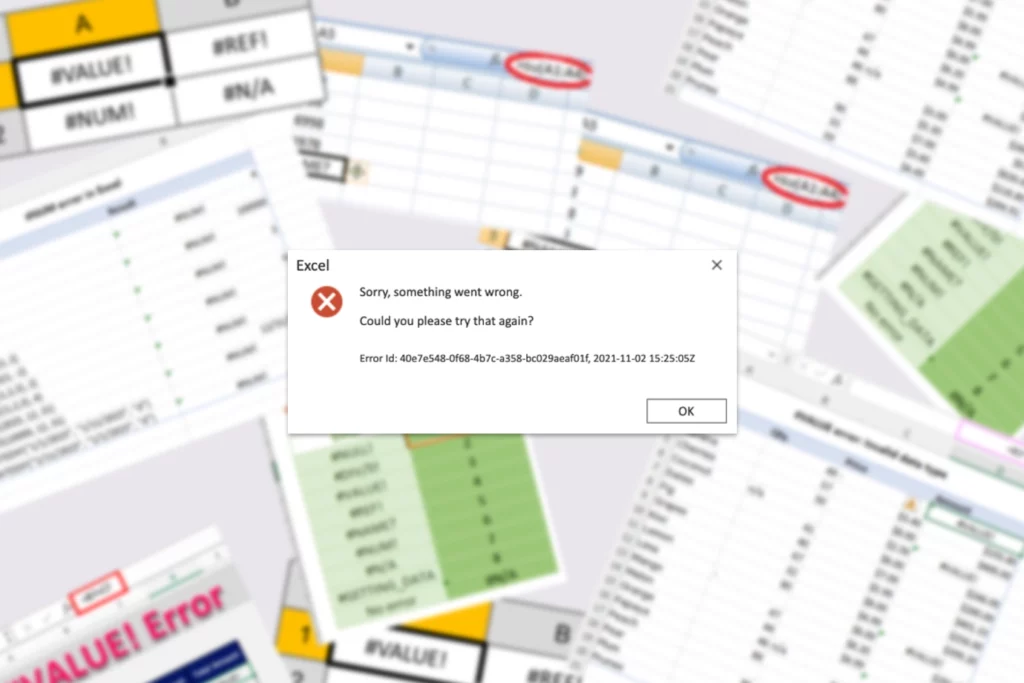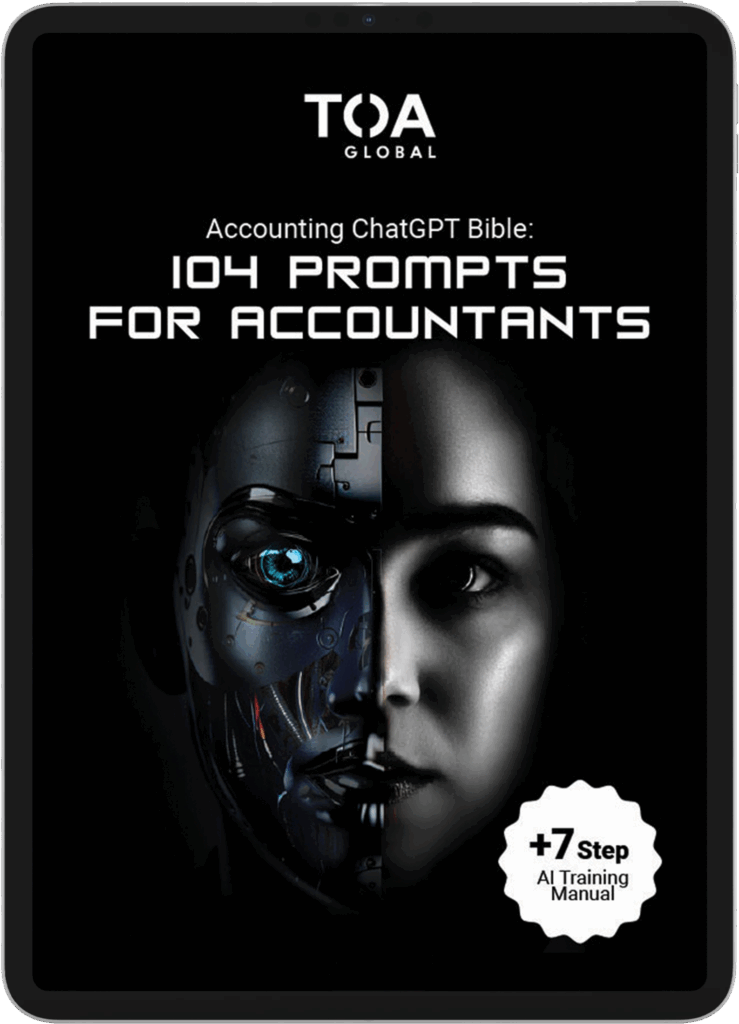Every successful accounting firm has one thing in common: they know how to get the best people on board.
In assembling your dream accounting team, you wouldn’t want to base solely on credentials and performance. The other equally crucial half of the battle is choosing the applicants who fit your firm’s needs, goals, and culture the best.
That’s where asking the right accounting interview questions comes into play.
In this blog, we’ll give you 7 accounting interview questions designed to help you whittle down dozens of applications into the top candidates, and eventually secure the right talent for your firm.
1. Questions About Overcoming Work-related Challenges

Work-related issues are expected to arise in day-to-day work.
Your candidates need solid experience in overcoming major challenges in the workplace.
This is why it’s crucial for recruiters to ask their candidates about the exact ways they address their work-related concerns and issues.
So how should this question be answered?
Applicants should cite recent examples, like what they did in their previous roles. However, their examples can also go as far back as from their school internships or their university experience, especially if they believe their example stands out and deserves to be shared.
Additionally, overcoming work-related challenges requires both hard and soft skills. Make sure that you have a comprehensive skills checklist ready once your candidates start sharing their experiences.
Skills Involved
Problem Solving Skills
Technical Skills
Communication Skills
Time Management Skills
Decision-making Skills
Sample Questions to Ask
- "Describe one of the biggest challenges you have faced as an auditor and how you overcame it."
- "Share with us your best trait that has helped you conquer your toughest work-related challenges as a tax specialist?"
- What are the top 2 hurdles you have faced as a CPA and how did you overcome them?"
Bonus Tip: What You Should Look For
When it comes to work-related challenges, most recruiters would prefer if the candidate is able to cite a specific experience related to the interview question. Applicants should avoid giving answers that are too general or theoretical.
Here are some salient things to look for:
Transparency
The applicant should provide an answer with honesty and transparency
Concrete example
The applicant should provide examples of previous work-related challenges that happened in real life, not in theory
Redemption
The applicant should adequately and accurately explain the exact way they overcame his/her work-related challenge/s
Correct usage of accounting terms
The applicant must show mastery of his/her area of expertise (tax, audit, etc.) through precise, accurate, and role-specific accounting parlance
Adherence to ethics
The applicant should explain how he/she practiced compliance with GAAP/IFRS and applied his/her general knowledge of accounting ethics to how they overcome their work-related challenges
2. Questions About Improving Processes

While it’s good that your candidates are efficient and productive by themselves, they should also be involved and proactive when it comes to enhancing your overall accounting processes.
More than being tech savvy, candidates should demonstrate their ability to identify process improvement opportunities and adapt to any changes or disruptions to established routines and workflows.
Skills Involved
Organizational Skills
Problem Solving Skills
Communication Skills
Decision-making Skills
Sample Questions to Ask
- "Can you describe a time when you identified a need for process improvement in your previous role?"
- "Give me an instance when you offered suggestions to make an accounting procedure or process more efficient."
- "What do you think is the best management framework to reduce bottlenecks in your workflow?"
3. Questions About Identifying and Resolving Errors

Accuracy and attention to detail are two of the most crucial qualities accounting professionals must possess, especially in areas like tax and auditing, where the stakes are high, and the margin of error is low.
In other words, shoddy accounting work can cost your business everything, like these major accounting scandals in recent years.
When interviewing candidates, make sure you gauge their ability to spot errors in a pile of data and how quickly they can resolve them. Even something as tiny as a misplaced decimal point or an extra zero can spell the difference between happy clients and a multimillion-dollar lawsuit.
Skills and Traits Involved
Attention to Details
Efficiency and Productivity
Problem Solving Skills
Decision-making Skills
Sample Questions to Ask
- " When it comes to bookkeeping, explain to us how you ensure accuracy in as much detail as you can share."
- "Can you give an example of some of the most common accounting errors, and if you've ever encountered at least one of these, discuss how you identified and resolved it."
Bonus Tips: What You Should Look For
While it’s good to mention the steps or methods they take in spotting and solving errors, it’s better for applicants to have a particular structure that they follow in their review and QA process.
The applicants should have a basic grasp of things like accounting error types: transposition errors, errors of omission, and errors of commission. Failing to recognize these should be an automatic red flag.
Here are additional points to consider:
Eagle eye
Example: bookkeeping applicants should be able to tell items like 24534 and 24354 apart.
Basic knowledge of tools used in accounting
Example: bookkeeping applicants should be able to define what bank statements, journal entries, and general ledgers are.
Basic knowledge of accuracy checking techniques
Example: bookkeeping applicants should know how to trace items back to the invoices and receipts, cross-reference trial balances and financial statements, and practice double-entry bookkeeping.

4. Questions About Generally Accepted Accounting Principles
Generally Accepted Accounting Principles
(GAAP)
– A set of standards and rules governing the accounting profession.
One way to gauge your candidates’ level of dedication to their roles is by testing their knowledge of current accounting laws — specifically, generally accepted accounting principles (GAAP).
To determine how much your candidate knows about GAAP and other established standards, you should focus on the following:
- How they stay updated on changes in accounting legislation
- Memberships in legitimate professional accounting organizations
- Habits like reading reliable sources on accounting laws and standards (Accounting Today, The Economist, etc.)
- Detailed explanation of how they candidate apply this latest information to their accounting practices
Skills and Traits Involved
Familiarity with Current Accounting Laws
Passion and Dedication
Accounting Expertise
Sample Questions to Ask
- "Please differentiate GAAP financial statements and pro forma financial statements."
- "Define the following accounting concepts: depreciation, accrual, and amortization."
- "How do the GAAP and IFRS differ from each other?"
5. Questions About Ethical Dilemmas

Accountants face ethical dilemmas more often than other professions.
Ensuring clients maximize every applicable tax credit, incentive, and deduction while navigating complex compliance requirements doesn’t just take elite accounting know-how but also a firm ethical commitment.
On top of this, accountants also deal with a lot of confidential information and the ever-present risk of data breach. Especially with today’s rising cybersecurity threats, accounting professionals grapple with more pressure than ever before.
That’s why your accounting interview questions should not just gauge a candidate’s technical expertise but also their values, virtues, and ethics.
Skills and Traits Involved
Basic Knowledge of Accounting Ethics
Decision-making Skills
Problem Solving Skills
Sample Questions to Ask
- "Do you think you need to compromise your values to solve a company problem?"
- "What would you do if you witness your superiors and coworkers falsifying documents?"
- "Given today's social climate, do you think existing accounting ethics are up-to-date?"
Bonus Tips: What You Should Look For
While most may consider interview questions on ethics as open-ended, the answers speak volumes about the character of the applicant. After all, you wouldn’t want fraud, misrepresentation, or any unethical practices in your accounting firm.
Adhering to ethical principles such as honesty, objectivity, confidentiality, and professional competence not only enhances your firm’s reputation but also protects your clients from potential harm. Ultimately, your applicants’ answers should reflect values like accountability, fairness, and transparency so that they can be effective and reliable representatives of your accounting firm.
6. Questions About Industry Trends

From choosing the best accounting software for your daily operations all the way to leveraging AI for your accounting processes, having a strong understanding of industry trends is another asset to look for in a candidate.
The ideal applicant must be well-versed in the latest industry updates, including client acquisition strategies, process improvement tactics, and other relevant news and trends.
Skills and Traits Involved
Knowledge of Current Trends
Technological Savviness
Sample Questions to Ask
- "Give us a concrete example of how you used AI in your previous role in an accounting firm."
- "What accounting software would you integrate into our current system so that we can maximize efficiency?"
- "How have technological innovations helped you as an accountant? Cite an example."
7. Questions About Working Under Pressure

Missed deadlines can cost your firm clients. When an applicant knows how to beat deadlines, it helps your firm maintain its reputation as reliable and professional.
Ask thought-provoking questions about working under pressure, and your candidate’s answers can tell you a lot about their work style, work ethic, personality, and how fast they can think on their feet. Make sure that you touch on their time management and organizational skills, and gauge their ability to prioritize and handle time-sensitive tasks.
Skills and Traits Involved
Time Management Skills
Problem Solving Skills
Discipline and Dedication
Sample Questions to Ask
- "Share a time when you were able to successfully beat a deadline and how this impacted your career as a tax specialist."
- "Give an example of a time management framework or methodology that you use at work."
- "Do you easily crumble under pressure? Why or why not?"
Bonus Tips: What You Should Look For
Ask the candidate to provide examples of times when they were faced with tight deadlines or challenging time constraints in previous roles, and how they successfully managed to meet them. Look for responses that demonstrate strategic prioritization, effective time management techniques, and the ability to remain calm and focused under pressure.
Pay attention to the sequence of events in their narration. If it’s all over the place, then consider that a red flag. Lastly, inquire about how they communicate with team members or superiors when facing time constraints.
Do they still respect their colleagues when working under tight deadlines?
Are they easily angered when pressed for time?
Look into these details and assess if they’re a good fit for your firm.
Bonus: Key Terms and Concepts for Your Accounting Interview
cash flow
ERP
balance sheet
tax laws
accounts receivable
To select the best possible candidate, you need some level of knowledge in accounting terms and concepts. Here’s our quick and helpful guide for those who want to enhance their accounting know-how and parlance.
1. Accounts Receivable
Definition: The money that customers are yet to pay a company
Applies Best To: Accounting Roles in the Finance Department
Other Related Terms and Concepts: Accounts Payable, AP Cycle, AR Cycle
2. Cash Flow
Definition: The movement of money into and out of the business over a certain period
Applies Best To: Most Accounting Roles
Other Related Terms and Concepts: Cash Flow Statement, Accrual Accounting, Cash Accounting
3. Tax Liability
Definition: The amount of tax debt owed by an entity (individual, corporation, or other) to the government
Applies Best To: Tax Accounting Roles
Other Related Terms and Concepts: Tax Accounting, Tax Laws, Tax Authorities
4. Balance Sheet
Definition: A company’s financial statement reporting its assets, liabilities, and shareholder equity
Applies Best To: Most Accounting Roles
Other Related Terms and Concepts: Assets, Liabilities, Equity
5. Accounting Cycle
Definition: The overall recording and processing of a company’s financial transactions
Applies Best To: Most Accounting Roles
Other Related Terms and Concepts: Journal Entries, General Ledger, Financial Statements
6. ERP
(Enterprise Resource Planning)
Definition: A software system helping businesses manage their core processes
Applies Best To: Accounting Roles Relating to IT/Process Management
Other Related Terms and Concepts: ERP System, Accounting Software
Finding the Right Fit Beyond the Interview Questions

When you’re asking interview questions, it’s a general rule to go beyond exploring their skills and experience. You should determine whether they would be a good cultural fit for your firm. Recruiters should create ways to get more insight into their personality, ethics, type of judgment, sense of initiative, and level of commitment.
To effectively fill accounting roles, the hiring manager should gauge both the hard and soft skills of the candidates. More than their knowledge of GAAP/IFRS or using the latest accounting software, your ideal candidate should embody your company’s values.
It’s good to note that even highly qualified candidates may not necessarily be the best culture fit. Likewise, a morally upright candidate who brings nothing to the table but missed deadlines and mediocre output is not a good choice either.
The ideal candidate knows their strengths and is eager to work on their weaknesses. They mirror the company values, listen to their superiors and colleagues, and spend their time wisely to get things done at work.
It pays to ask the right interview questions: going beyond surface-level knowledge and gleaning more information about candidates’ nuances helps you gauge what and how well they can contribute to your firm’s long-term success.
Need a Global Talent Solutions Provider?
As every owner wants long-term and sustainable growth for their firms, you’re going to need the best team to execute your firm’s day-to-day accounting tasks while you focus on your clients, strategy building, and making better informed business decisions.
Whether you’re looking for auditors, tax specialists, bookkeepers, or executive assistants, tapping into our pool of job-ready offshore accounting professionals gets you the qualified talent you need faster and for less cost.
If you want to join the 1,190+ firms worldwide that have scaled their operations and accelerated their growth through global teams, talk to us today!





















